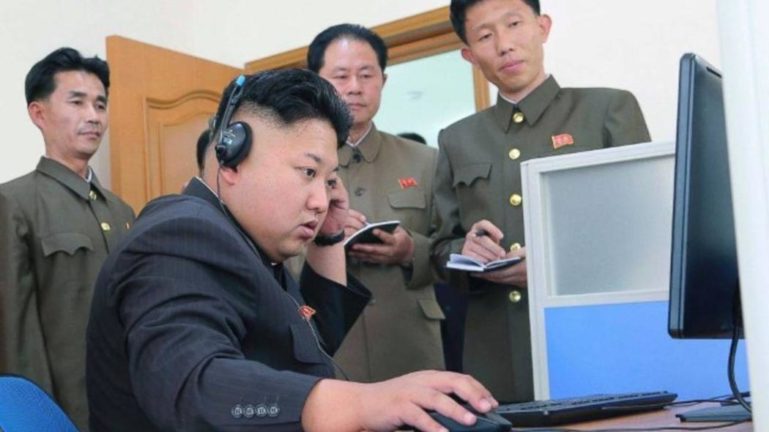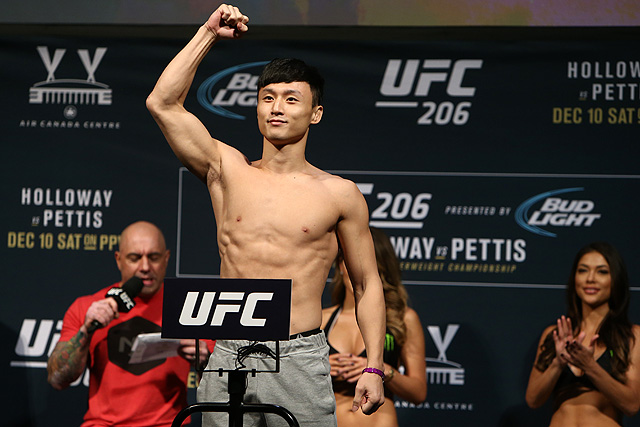
Front and center was a cage where men would soon punch each other for money. Seats inside Seoul’s cavernous Olympic Hall wrapped around it on two levels: cageside VIP tables for the type of people who wear suits to a cage fight, and open seating above it for everyone else. Behind the cage was a ramp that led up to a theater stage set up with gear for a rock band. Above, a jumbo screen showed silent highlight videos of older matches on a loop.
A pre-fight promotional video started. Clips of knockouts played as the lights dimmed. Band members crept to their positions through the shadows while the video showed mean-mugging men holding up their fists. The video culminated with resounding, ear-splitting English: “Top FC! Fighting! Champion!”
The screen went blank. A row of mortar-like pyrotechnics shot flames upward from the edge of the stage, and the band started screaming over the sounds of their instruments. They sounded like the kinds of bands most kids listen to in high school but are now embarrassed to think about–except all in Korean.
It was exactly the type of campy, weird high-production values that I wanted, but as the music pierced the on-stage flames and echoed through the auditorium, I didn’t quite feel there. I didn’t quite feel anywhere…”



